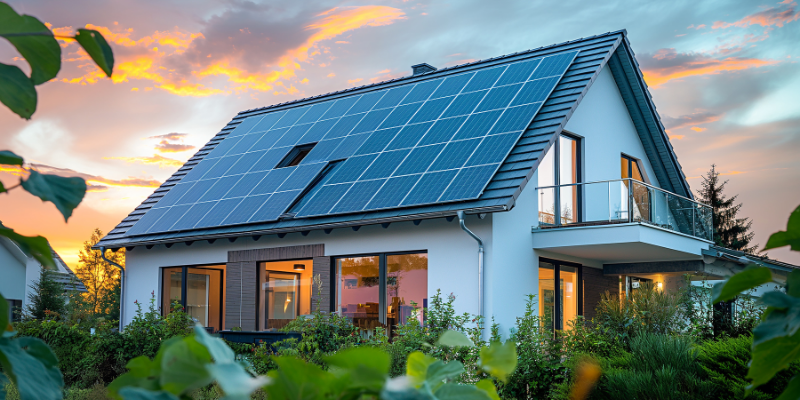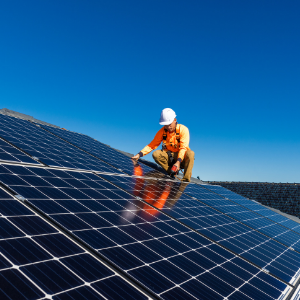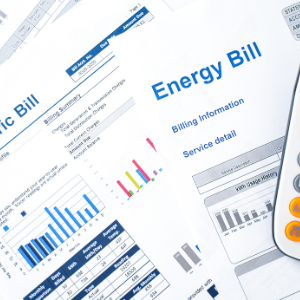
In Michigan, selling a home with solar panels presents unique opportunities, while also posing some challenges. These days, understanding the market value of solar installations on residential properties is especially pertinent. Effective communication, as outlined in this guide, is crucial for understanding how to sell a property with solar panels to buyers, considering all relevant regulations, long-term savings, and the value that solar panels provide. New and seasoned homeowners alike can come to appreciate the insights this guide offers on closure, while also emphasizing the importance of environmental sustainability. This selling guide helps property owners sell their homes with ease and clarifies any confusion about solar energy storage on residential properties in Michigan.
The Michigan Solar Panel Landscape
Recently, Michigan has taken a leading role in advancements in solar energy technology and development. The level of dedication by the state towards the implementation of renewable energy and the encouragement of solar use has been the primary reason fuelling the growth in the state’s installation of solar energy solutions. Michigan’s solar energy system geography is expanding much faster than the national average, supported by state-level subsidies and favorable public opinion towards eco-friendly/ renewable energy options. This section of the paper examines the significant growth in solar systems and the impact that these incentives have on the solar industry in Michigan.
The Growth of Solar Installations in Michigan

Michigan, which houses one of the strongest initiatives in the renewable sector, has seen a rapid growth in the market for solar panels, along with increased installations. Previously, the solar market in Michigan was unflourishing compared to other states, which are sunnier. However, diverse zero-emission supportive policies and incentive programs available at the state level have made solar panels ubiquitous in Michigan. The state of Michigan has achieved significant independence in energy, positioning it at the forefront of the renewable energy market.
Michigan has seen an accelerated growth in the number of commercial and residential solar installations. This surge in development has also led to an increasing awareness of the economic benefits that solar panels can offer. The lower price of solar systems has also led to a higher level of individuals being curious about solar energy for household consumption. In addition, the combination of state-level solar initiatives and federal tax credits has made the installation of solar panels in Michigan significantly cheaper than it would be without these incentives. Not only do solar panels provide free electricity, but they also increase property value and give a good return on investment.
In Michigan, utility companies have also played a significant role. They have collaborated with the state to promote the installation of solar panels. They have programs that subsidize the cost of solar panels. Community solar systems provide individuals with the opportunity to invest in solar energy, even if they don’t have an ideal roof. This broadening of the solar energy market also broadens accessibility to solar energy. Michigan’s solar panel market has experienced exponential growth, driven by the increasing supply of solar products and installation services.
Furthermore, the installation of solar energy systems has been driven by increased public advocacy that focuses on the positive impacts of solar energy, including employment generation, reduced carbon footprint, and energy savings. The advocacy and education programs have also shaped the culture in the state, thereby strengthening efforts to promote solar technology. As the solar footprint in Michigan expands, the market attracts more investments, resulting in advancements in energy systems. This growth leads to an optimistic outlook for solar independent systems and other installations in Michigan.
The highly competitive photovoltaic sector presents a successful business case within the state of Michigan, primarily due to the programs the state has designed to incentivize the use of photovoltaic systems. Michigan residents can take advantage of low-interest loans, state and federal tax credits, and net metering programs. These policies not only eliminate the initial costs of the solar systems but also improve them with a positive cash flow. Moreover, other policies, such as community solar programs and educational programs on solar energy, facilitate broader participation and deepen the understanding and appreciation of solar energy. These factors collectively demonstrate Michigan’s commitment to developing renewable energy within the state.
What Are the Benefits of Solar Energy in Michigan?
Given Michigan’s dedication to innovative and clean energy techniques, the state has quickly become a center for solar technology advancement and application. Not only has the state’s investment in renewable energy led to a significant increase in the number of solar energy installations, but the resulting benefits are far more substantial than mere numbers would suggest. Installing solar panels in Michigan has numerous benefits, including reduced environmental impact, lower utility bills, and increased energy self-sufficiency. These will attract new customers and homeowners looking to install solar panels in their buildings, thus guaranteeing a better quality of life for everybody.
| Benefit | Description | Impact |
| Renewable Energy Source | Solar energy provides a continuous and abundant energy supply, capitalizing on Michigan’s solar potential. | Reduces dependence on fossil fuels, contributing to environmental sustainability. |
| Cost Savings | Installation of solar panels leads to lower electricity bills for consumers and businesses. | Enhances economic resilience by decreasing energy costs and increasing savings over time. |
| Job Creation | The expansion of the solar industry generates employment opportunities in installation, maintenance, and manufacturing. | Boosts local economies and reduces unemployment rates within the community. |
| Energy Independence | Local solar energy production minimizes reliance on external energy sources and grid fluctuations. | Improves energy security and reliability for Michigan residents and businesses. |
This table provides a concise overview of how solar energy contributes to Michigan’s sustainability, economic savings, and energy resilience.
Cost Savings and Energy Independence with Solar Panels
Installing solar panels in Michigan can bring considerable savings alongside enhancing energy independence for households. Along with significantly decreasing utility costs, solar energy systems enable homeowners to generate their own electricity, thereby reducing their reliance on the grid. Homeowners also stand to benefit from net metering programs, which will allow solar installations to transition from an expense to an investment.
In most cases, the savings from net metering solar leasing arrangements offset the purchase price of the panels. These tax credits, along with other federal incentives, are strategically applied to encourage the broader Michigan public to adopt solar energy systems. The prospect of net operational savings, after deducting the initial investment, is the most powerful persuading factor motivating solar technology adoption for most households.
Apart from monetary incentives, solar panels enable energy independence and self-sufficiency, allowing for control over power sources and associated expenditures. This situation is particularly beneficial in a state like Michigan, where seasonal energy demand uncertainties are prevalent. Self-produced electricity enables homeowners to avoid utility bills, price fluctuations, and supply interruptions, thereby ensuring a self-sustaining energy environment.
Independently sustaining energy sources is also an added benefit when selling a house. Buyers recognize and appreciate the cost, energy autonomy, and ease provided by solar systems. Solar energy is closely tied to modern practices, and its increased desirability in the housing market makes homes more competitive and able to attract higher bids. Real estate agents state that the presence of solar panels on a property increases its value and quickens the selling period.
In Michigan, solar panels represent an unparalleled ease of access in the housing market. The apparent decrease in energy expenditures, coupled with solar energy independence and sustainability, makes homes with solar panels a constant target for eco-friendly and economically prudent buyers, while maintaining robust demand.
Tips for Selling a House with Solar Panels
Selling a house with solar panels in Michigan requires a unique approach to demonstrate these energy systems to potential buyers effectively. Focusing on the solar installation’s features can help drastically change a buyer’s mindset, as eco-friendly homes are increasingly in demand. Further, having prepared detailed solar documentation fosters ease and trust in the transaction. This section offers valuable strategies for enhancing sales through solar panels, as well as the importance of promoting positive buyer-seller interactions through adequate documentation.
Highlighting the Advantages of Solar Systems to Buyers

Selling a house with solar panels in Michigan means it is your duty to explain the economic benefits of a solar system to the buyers. The prime advantage of having solar panels is reducing the energy bills. The home is now both environmentally friendly and economically beneficial simultaneously. Anything in Michigan is subject to seasonally shifting energy prices; therefore, a home with dependable and predictable energy bill savings is a true gem. Potential buyers would find the prospect of lower utility bills very appealing.
It is essential to highlight the solar system’s solar panels’ ability to impact the environment positively. With an increasing number of buyers seeking to ensure their actions align with sustainability, having a home that fosters this can be a great opportunity. Solar panels help reduce dependence on fossil fuels, which complements Michigan’s renewable energy goals, thereby enhancing the property’s sustainable profile. The added value is immense, especially since it will resonate most strongly with buyers and their core values, motivating them to purchase the home.
The buyers’ reluctance to invest in aging systems stems from concerns about long-term maintenance; therefore, the seller should be willing to demonstrate recent upgrades or highlight advanced components to alleviate these concerns. Showing buyers that the system modernizes the home not only indicates that it minimizes the risk of being mired in obsolete technology, but it also empowers them with a sense of certainty, which in turn, encourages them to invest.
The process can be significantly streamlined by engaging a real estate agent who specializes in homes with solar panels. Such real estate professionals can devise promotional campaigns that emphasize the unique virtues of the system, also framing its various monetary, ecological, and energy independence selling points. By persuading buyers of the system’s benefits, sellers can highlight the depreciation in the economic value of the system and its complex, intricate, and far-reaching sustainability systems. In turn, this widens the seller’s target market and increases the likelihood of a sale.
Preparing Your Solar Documentation for Sale
Like any other real estate asset, homes with attached solar systems require clear documentation. Prospective buyers typically have several questions regarding the system’s installation, history, and overall performance. Trust can be established quickly when all relevant documents are obtained—including installation contracts, warranties, system specifications, and maintenance records. This greatly assists in expediting the sale and lessens the chance of issues arising during the due diligence phase.
Of course, warranties are crucial documents and need to be outlined. Many prospective buyers are unaware of the average life spans of solar panels and inverters, as well as the coverage they provide. Outlining any transferable warranties—especially solar panel warranties—reassures buyers that their finances are safe should any surprise repairs or system failures occur. This mitigates disputes that are typically common in real estate transactions after the sale, thereby boosting the overall value of your home.
Another crucial element of solar documentation is financial transparency. If the solar panels were financed using loans, what is the status of their transferable collateral and any remaining obligations? Buyers are concerned about whether they are taking on payments on solar systems or whether the seller is the complete owner of the system. Providing clear answers to these questions, which involve both state and federal tax credits or incentives, can help mitigate many financial concerns and portray the system in a more favorable light.
Providing documentation for the taxation credits and incentives you have previously described to the buyers is equally important. Inform buyers of the potential Michigan solar state tax credits as well as the federal tax incentives that may become available afterward. Helping out potential buyers with these savings helps buyers change their perception of the system from a financial burden to an economic asset. These monetary benefits, along with additional incentives, can enhance the property’s attractiveness and improve negotiation positions.
Ultimately, collaborating with a real estate agent who understands the intricacies of selling homes equipped with renewable energy systems can have a tangible impact and set them apart from others. A skilled agent will take the initiative to identify the benefits of solar ownership, alleviate buyer concerns, and articulate the positive impacts of the system on energy conservation, cost savings, and efficiency. After gathering comprehensive paperwork and alongside an adept agent, sellers can positively alter the market perception of their home by strategically marketing it as a well-documented, maintained, and unmatched solar home, thereby increasing the probability of a smooth closure.
Selling Your House With Owned Solar Panels
As the demand for renewable energy solutions grows, selling a house with owned solar panels in Michigan presents unique opportunities and challenges. Understanding the benefits solar panels bring to property value and navigating the legal and technical aspects involved is crucial. This comprehensive guide explores how owned solar panels can enhance your home’s market appeal and the steps necessary to ensure a smooth selling process.
Value Addition of Owned Solar to Property
In Michigan, the competitive real estate market has enough value to solar panels on a property. One of the advantages is that solar installation on homes can be an appealing feature to buyers, as many prefer homes with solar panels. This does sell homes quicker, but at a premium. These homes offer an environmental benefit. This is desirable because homes have solar panels.
The value of the property increases, and the owner’s utility bill tends to decrease due to the cost savings from energy efficiency. With the financial flexibility available, the vacant property becomes even more appealing to buyers. This is especially the case for Michigan, as energy costs are highly volatile due to seasonal demand fluctuations. This is one of the cases for buyers. Having competitive offers increases, and the home becomes better suited for buyers.
In addition to immediate financial savings, solar panels contribute to increasing the property’s appreciation value over time. Homes equipped with solar panels are considered sustainable and prepared for the future, where energy demand is expected to grow, making them more marketable or market-ready, as they align with prevailing energy trends. This positive appreciation not only makes the property more marketable but also reinforces and strengthens the perception of the home as a worthwhile investment. Sustainable and energy-efficient features, such as solar panels, resonate with buyers who appreciate modern, energy-efficient technology and are forward-thinking.
Solar panel ownership also has the significant additional benefit of ease in the transaction process. Unlike leased systems, owned panels can be transferred to new owners without incurring any further legal or financial obligations. This not only streamlines the sale process but also provides the buyers with peace of mind. In addition, owned panels are presumed to be assets, not liabilities; hence, they can also serve as a justification for higher valuations. This also enhances the property’s appeal and competitiveness in the market.
Selling a house with owned solar panels equips the property with a solar panel system, alongside the added advantage of being positioned in a growing and profitable niche market. Articulate the benefits of the system from an economic, environmental, and practical perspective, as it can significantly shape sales outcomes and increase buyer interest. In addition, it is the seller’s and buyer’s responsibility to ensure that the value of a solar-equipped home is prudent enough to maximize the value added to the transaction, thereby simplifying it and making it more successful.
Navigating the Legal and Technical Aspects

In Michigan, the sale of a property with solar panels is subject to several legal and technical considerations. Addressing these issues appropriately is critical for a smoother sale, buyer’s confidence, and the protection of the seller’s real estate investment.
The most significant and relevant legal issue in this case is the ownership of the property title. Solar panels constitute a substantial improvement to the home; therefore, they should be included in the property documentation. It’s necessary to settle whether, for legal purposes, the panels will be regarded as part of the home’s fixtures to avoid disputes with buyers at the time of sale. Proper legal documentation, which proves the seller’s ownership of the solar panels, simplifies the sales process and helps avoid future legal confusion.
If the solar system were financed, it would be equally necessary to provide the particulars concerning the outstanding loans. The buyer needs to be clear on whether the loans are assumed or paid off. Michigan state and federal regulations are clear on this area. The relationship between the buyer and the seller will be off if this area of the deal is not clearly reported.
From a technical perspective, submitting detailed documentation about the solar system helps boost buyer confidence. This includes the make and model of the solar panels, their capacity, installation details, servicing records, and the maintained files. Noting recent servicing, warranty information, and warranty documentation can provide peace of mind that the system is dependable. Demonstrating that the solar panels and system perform effectively and last a long time adds significant value to a home, showing that the property is a valuable and future-ready investment.
A well-positioned and knowledgeable real estate agent can undoubtedly have a profoundly positive impact. An agent specializing in solar homes will articulate the financial and environmental advantages of the solar system while fielding questions that potential buyers may have. Their knowledge about energy efficiency and local energy regulations that impact the current and future market helps to strategically price the home for a competitive advantage in Michigan real estate.
For solar panels on a home, the legal and technical processes involved in selling the house can be pretty time-consuming and complicated. Titles, solar loan documentation, and system information that are prepared in advance of the sale make the process attractive and easy for buyers.
Not only does selling a home with solar panels in an area like Michigan demonstrate an eco-friendly lifestyle, but it can also unlock real value with the money saved over time. Locally, understanding the regulations, accurately valuing the solar system, and effectively marketing its advantages will help maximize the home’s charm and valuation. Whether making an independent sale or with the assistance of a real estate professional, effectively communicating the solar savings and incentives during a transaction helps attract savvy buyers who are clean and green advocates.
For a quick, reasonable, and local option, Blue Moon Acquisitions is prepared to buy your Michigan house regardless of its condition. They specialize in solar and energy-efficient homes, ensuring you receive the best possible offer. And if you’re ready to sell your house fast for cash in Detroit, MI, Blue Moon Acquisitions is your local partner in making that happen.
If you want to sell your Michigan house with solar panels for cash, contact Blue Moon Acquisitions at (586) 209-3290 and make your solar home smart, and sell it at a profitable price.
Frequently Asked Questions
How do solar panels impact the value of a house in Michigan?
Solar panels can enhance the value of a house by making it more appealing to eco-conscious buyers and those looking for energy savings. Homes with solar installations are often viewed as modern and sustainable investments, which can lead to faster sales and potentially higher selling prices.
What are the financial incentives for installing solar panels in Michigan?
Michigan offers various financial incentives, including state-supported programs, federal tax credits, and low-interest loans. These reduce the upfront costs and improve the ROI on solar installations, making them more accessible to homeowners.
What steps should I take to sell a house with solar panels in Michigan?
When selling a house with solar panels, highlight their economic and environmental benefits to potential buyers. Prepare detailed solar documentation, including installation and maintenance records, and partner with a real estate agent experienced in solar properties.
How do solar panels contribute to sustainability in Michigan?
Solar panels help reduce greenhouse gas emissions and the state’s carbon footprint by using renewable energy. They also conserve natural resources by decreasing reliance on fossil fuels, aligning with Michigan’s environmental goals.
What documentation is necessary when selling a home with solar panels?
Essential documents include installation contracts, warranties, maintenance records, and details of any financing or loans. Proper documentation ensures transparency and builds buyer confidence.
- Installation contracts
- System specifications
- Warranties and maintenance history
- Financial details (loans or credits)
Useful Michigan Blog Articles
- Closing Costs Without a Realtor in Michigan
- Delinquent HOA Dues in Michigan
- Hiring an Attorney to Sell My Home in Michigan
- Selling a Tenant-Occupied Home in Michigan
- Sell a Property with Title Issues in Michigan
- Selling a House with Water Damage in Michigan
- Is Michigan a Good Place to Live?
- Selling Your Michigan Home After Three Years
- Sell A House With Mold In Michigan
- Real Estate Attorney Fees For Home Sellers In Michigan
- Who Pays Closing Costs When Selling A Home In Michigan
- House Sale Contingencies In Michigan
- Selling a House with Solar Panels in Michigan
- How to Sell a House and Move Out of State in Michigan

